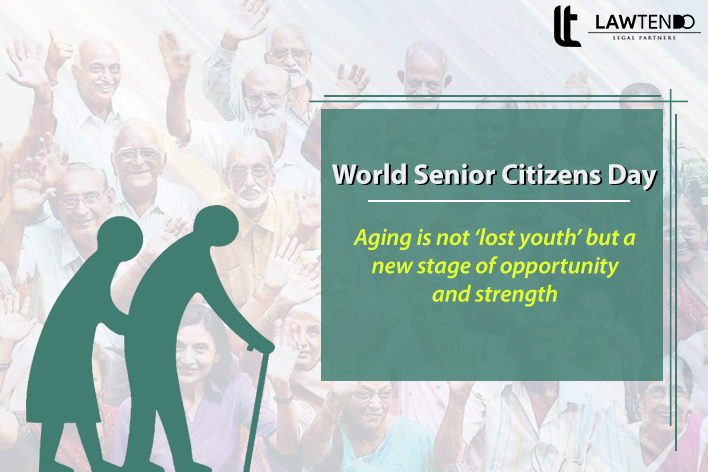What are the laws and legislations protecting senior citizens and their rights?

Date : 21 Aug, 2019
Post By Sankul Nagpal
Caring for senior citizens and old parents can easily be dubbed as one of the purest forms of humanity. From sacred texts to moral laws, taking care of senior citizens and parents are evidently man’s most elemental role in society. Most modern societies have recognized this need through various laws and schemes that cater to senior citizens and their rights. However, in a country like India, most of the people are unaware of these legislations owning to low literacy rate and ignorance. Who are senior citizens? Officially, according to the Maintenance and Welfare of Parents and Senior Citizens Act 2007 a senior citizen is one who is over the age of 60 years in India. Though this definition is not exhaustive and there exist anomalies, however from a general point of view a senior citizen is one who is 60 and above. According to data released by UNESCO, the population of the world's elderly (those aged above 60) is likely to cross the two billion mark by 2050. In India, senior citizens comprise of 8 per cent of India’s total population at 7.2 cr as per the last survey in 2001, however, this figure has been predicted to go up by substantially by 2025. Laws and Legislations Protecting Senior Citizens and their Rights The Constitution of India The Indian Constitution is the supreme watchdog of democracy and its people. Provisions have been made in the Constitution to preserve the rights of senior citizens. However, since these provisions are a part of Chapter IV of the constitution they correspond to Directive Principles of State Policy, and thus cannot be enforced by a court of law as stated in Article 37, however, they serve as the principle upon which any legislation is drafted. Article 41 of the Constitution secures the right of senior citizens to employment, education and public assistance. It further ensures that the state must uphold these rights in cases of disability, old age or sickness. Article 46 of the constitution further asserts that the educational and economic rights of the elderly must be protected by the state. The National Policy for Older Persons 1999 The NPOP 1999 is one of the earliest legislation that caters to the rights of senior citizens. As per the rights guaranteed under the National Policy for Older Persons, 1999, all Indian citizens aged above 60 (Senior Citizens) are entitled to a 30 % concession in ticket prices while travelling with the Indian Railways. The concession is 50 per cent for women aged above 60 along with other provisions to ease their travel. Air India under the scheme is also bound to provide 45 % concession to senior citizens for economy class booking. The policy also provides Indian air carriers to aid senior citizens to care such as allowing them to board and de-board before others or providing them with wheelchairs if required. The Hindu Adoption and Maintenance Act While different religions have different laws in place to protect the interests of senior citizens, some are codified and legalized. The maintenance of parents under the Hindu personal law is contained in Section 20 of the Hindu Adoption and Maintenance Act, 1956. According to section 20 of the act, a Hindu is bound, during his or her lifetime, to maintain his or her legitimate or illegitimate children and his or her aged or infirm parents. Income Tax Act Section 88-B, 88-D, and 88-DDB of the Income Tax Act make provision for senior citizens to claim a discount in tax. The senior citizens are also entitled to get a higher interest on tax saving plans, a wide variety of LIC policies and post office saving schemes to choose from. Thus various laws and legislations along with constitutional provisions aim at uplifting the status of senior citizens in India. However, the key to better tomorrow for senior citizens is the emotional and moral upliftment of the youth. LawTendo has around 15000+ lawyers across India in our platform. LawTendo strives to facilitate cost-efficient and quality legal service to our clients. You can contact us at +91-9671633666 or info@lawtendo.com.





